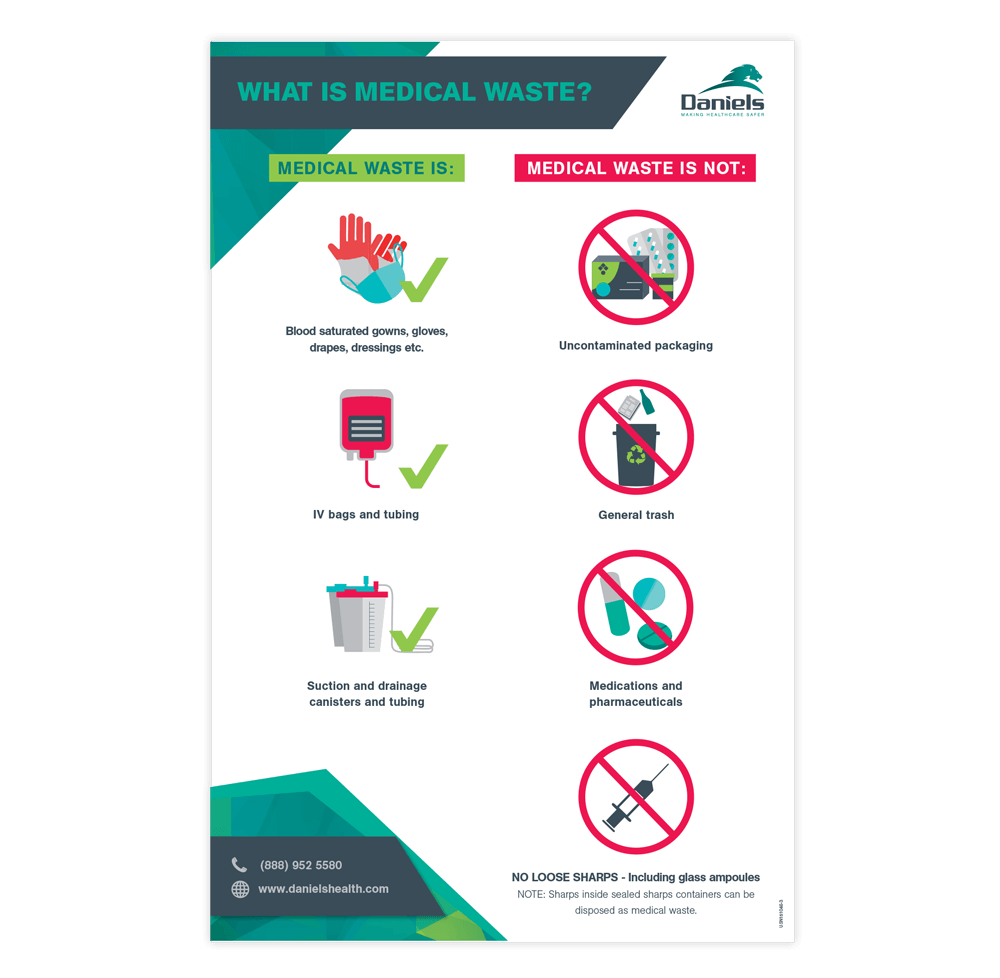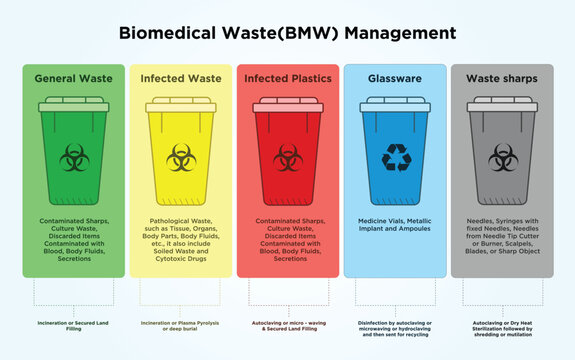Responsible Solutions: Understanding Medical Waste Disposal Services
In the world of medical care, the correct disposal of medical waste is a crucial facet that requires careful factor to consider. As medical care facilities create numerous kinds of waste that call for customized handling, understanding the subtleties of clinical waste disposal solutions is vital.
Relevance of Appropriate Clinical Waste Disposal
Appropriate clinical garbage disposal is essential in maintaining a safe and hygienic atmosphere within medical care centers. In healthcare setups, different sorts of waste are created daily, consisting of infectious materials, sharps, ran out medicines, and chemical substances. If not effectively handled, these wastes can pose major risks to both medical care employees and the public. Improper disposal can bring about the spread of infections, injuries from sharps, contamination of water resources, and damage to the atmosphere.

Kinds of Medical Waste
Within health care centers, a varied array of waste materials classified as clinical waste is generated, each calling for details handling and disposal approaches. Pathological waste, which includes cells, organs, and body components, necessitates proper disposal to respect the dignity of the deceased and avoid any type of biohazards. Comprehending the different kinds of medical waste is vital for healthcare facilities to apply reliable waste administration methods and shield public health and wellness and the atmosphere.
Rules and Compliance
Health care facilities must follow rigorous laws concerning the handling and disposal of clinical waste to make sure compliance with lawful requirements and secure public wellness. These guidelines are put in area to protect against the spread of infections, safeguard the atmosphere, and keep the security of health care workers and the public. Different regulative bodies, such as the Environmental Protection Firm (EPA), the Occupational Safety And Security and Wellness Administration (OSHA), and the Division of Transport (DOT), have specific standards that healthcare facilities need to comply with.
To comply with these guidelines, health care facilities need to correctly segregate, store, transportation, and dispose of various sorts of medical waste. This consists of sharps waste, transmittable waste, contaminated materials, and pharmaceutical waste, each calling for details managing treatments. Facilities has to also preserve exact documents of waste generation and disposal to demonstrate conformity throughout assessments.
Non-compliance with medical waste regulations can lead to extreme fines, fines, and damages to the center's credibility. It is vital for healthcare centers to stay educated regarding the most recent regulations and implement robust compliance actions to protect public health and the setting.
Advantages of Expert Disposal Solutions
Involving specialist medical waste disposal services provides health care facilities a trusted and effective service for managing unsafe materials. These services use trained specialists that are fluent in taking care of various types of medical waste, making sure correct partition, product packaging, disposal, and transportation. Medical Waste Disposal Services.
In addition, specialist disposal services use state-of-the-art tools and comply with sector ideal techniques to reduce environmental impact and lower the threat of contamination. This not just advertises a safer work atmosphere for healthcare personnel but also adds to general public health and safety. In addition, outsourcing medical waste disposal can result in cost financial savings in the future by removing the need for in-house monitoring and disposal systems.
Lasting Practices in Health Care

One secret sustainable technique in medical care is waste reduction. By carrying out approaches to decrease unneeded packaging, single-use products, and total waste generation, healthcare centers can considerably reduce the quantity of waste sent to garbage dumps or incineration. In addition, recycling programs for materials like plastic, paper, and glass can better minimize the environmental impact of medical care operations.

Final Thought
Finally, proper medical waste disposal is critical in maintaining a secure and healthy and balanced environment for both health care employees and the public. Comprehending the various kinds of medical waste, adhering to guidelines and conformity standards, and making use of expert disposal solutions are vital actions in accountable waste administration. By embracing visit sustainable techniques in medical care facilities, we can decrease environmental impact and ensure the well-being of all people involved in the health care industry.
As healthcare centers generate different types of waste that call for specialized handling, recognizing the nuances of medical waste disposal services is vital.Within medical care facilities, a varied selection of waste products classified as medical waste is created, each needing details handling and disposal approaches. Comprehending the his response various kinds of medical waste is crucial for medical care centers to execute effective waste monitoring techniques and secure public health and wellness and the atmosphere.
By applying approaches to reduce unneeded packaging, single-use products, and general waste generation, medical care centers can considerably lower the amount of waste sent to landfills or incineration. Understanding the various types of medical waste, adhering to regulations and conformity criteria, and making use of specialist disposal solutions are crucial steps in responsible waste management.
Comments on “Reliable Medical Waste Disposal Services: Partnering for a Cleanser Setting”